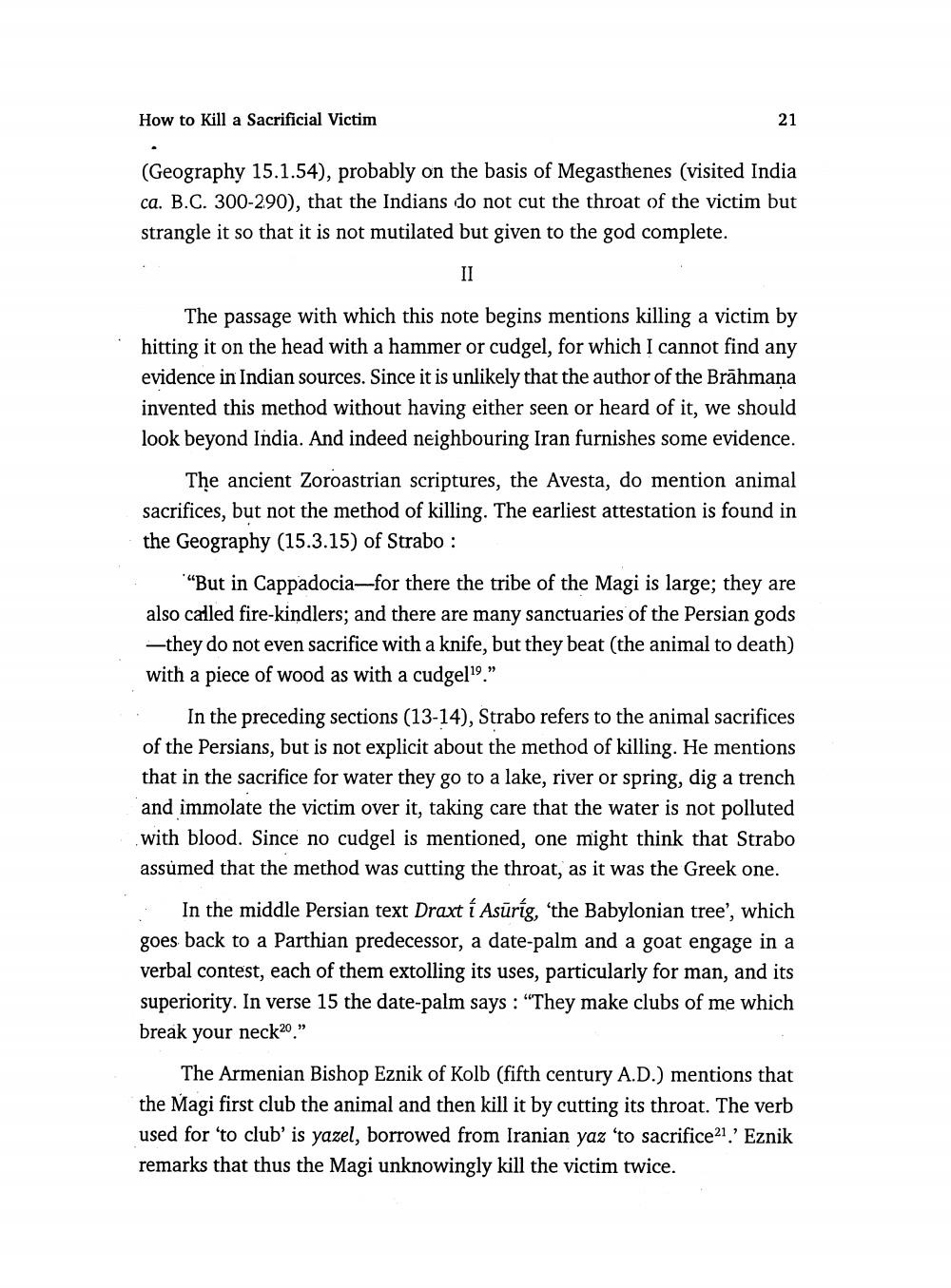________________
How to Kill a Sacrificial Victim
(Geography 15.1.54), probably on the basis of Megasthenes (visited India ca. B.C. 300-290), that the Indians do not cut the throat of the victim but strangle it so that it is not mutilated but given to the god complete.
The passage with which this note begins mentions killing a victim by hitting it on the head with a hammer or cudgel, for which I cannot find any evidence in Indian sources. Since it is unlikely that the author of the Brāhmana invented this method without having either seen or heard of it, we should look beyond India. And indeed neighbouring Iran furnishes some evidence.
The ancient Zoroastrian scriptures, the Avesta, do mention animal sacrifices, but not the method of killing. The earliest attestation is found in the Geography (15.3.15) of Strabo :
"But in Cappadocia-for there the tribe of the Magi is large; they are also called fire-kindlers; and there are many sanctuaries of the Persian gods --they do not even sacrifice with a knife, but they beat (the animal to death) with a piece of wood as with a cudgel."
In the preceding sections (13-14), Strabo refers to the animal sacrifices of the Persians, but is not explicit about the method of killing. He mentions that in the sacrifice for water they go to a lake, river or spring, dig a trench and immolate the victim over it, taking care that the water is not polluted with blood. Since no cudgel is mentioned, one might think that Strabo assumed that the method was cutting the throat, as it was the Greek one.
In the middle Persian text Draxt í Asūríg, 'the Babylonian tree', which goes back to a Parthian predecessor, a date-palm and a goat engage in a verbal contest, each of them extolling its uses, particularly for man, and its superiority. In verse 15 the date-palm says: "They make clubs of me which break your neck 20.”
The Armenian Bishop Eznik of Kolb (fifth century A.D.) mentions that the Magi first club the animal and then kill it by cutting its throat. The verb used for 'to club' is yazel, borrowed from Iranian yaz 'to sacrifice21. Eznik remarks that thus the Magi unknowingly kill the victim twice.




